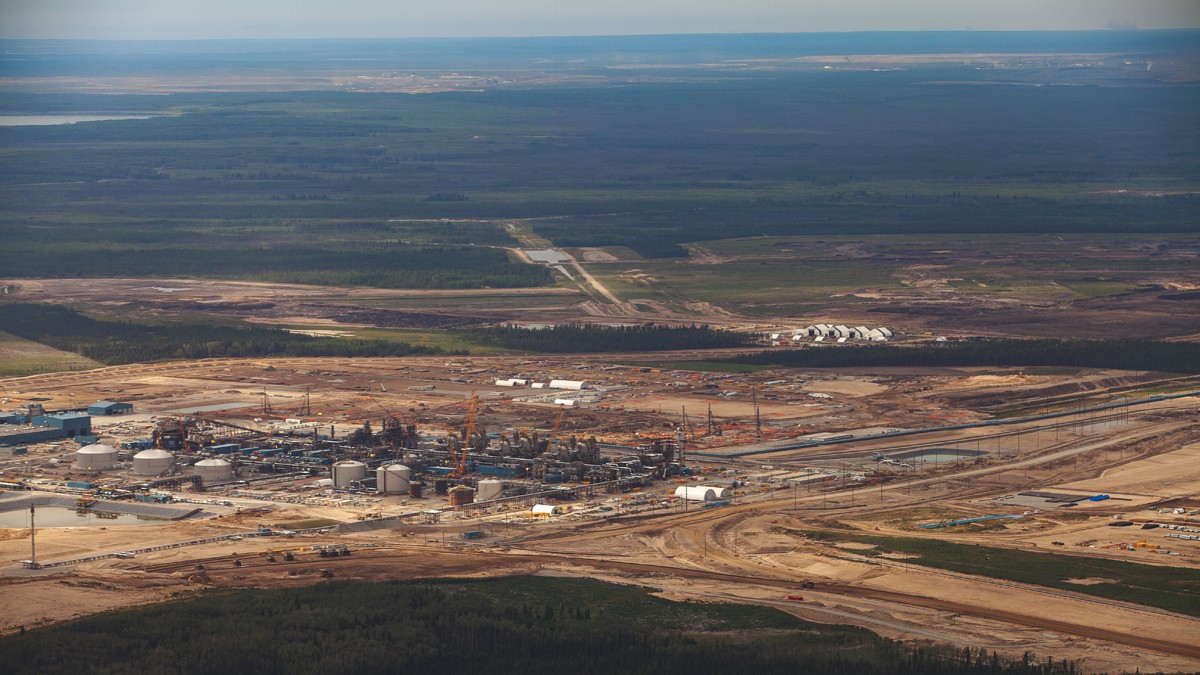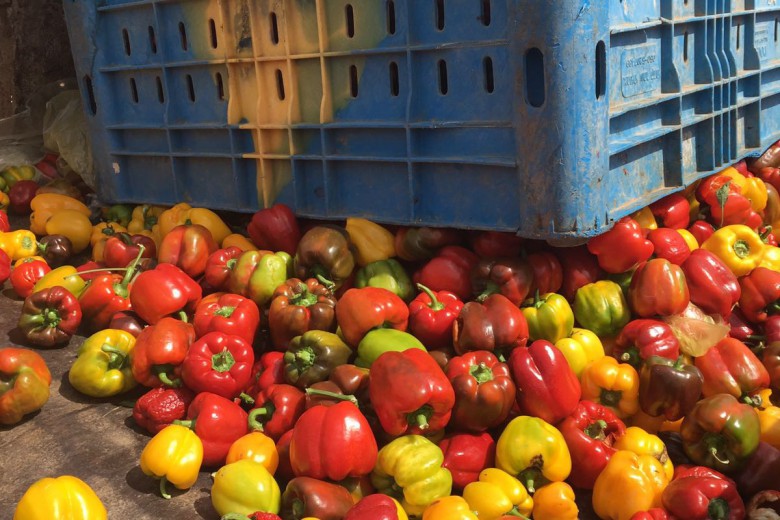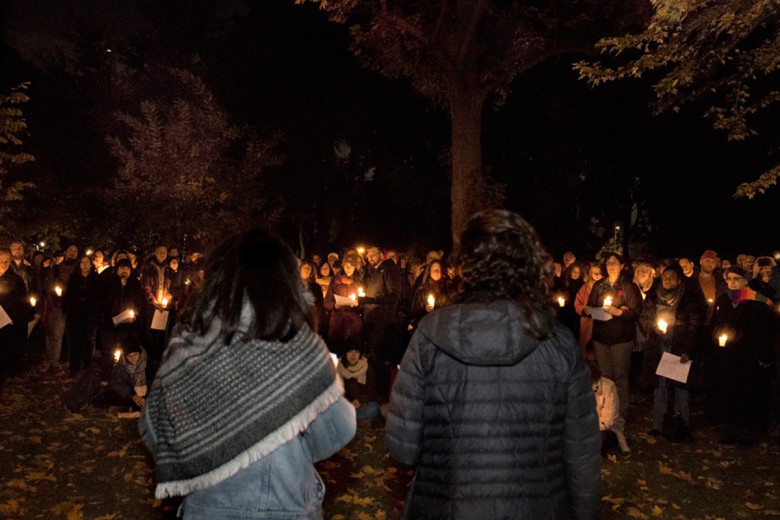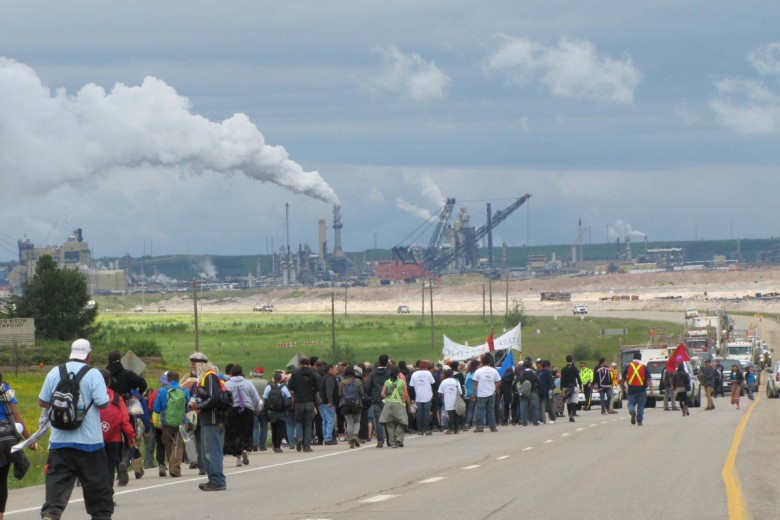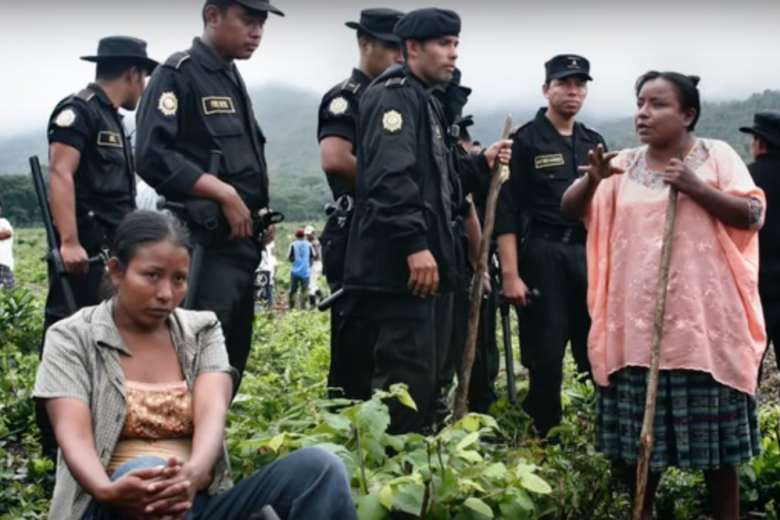“Alberta will no longer be a soft target,” declared Jason Kenney. “We will fight back for our economic survival.”
Kenney, the leader of Alberta’s right-wing United Conservative Party (UCP), was giving a keynote address at the party’s founding annual general meeting in May 2018. In his provocative speech, which he expanded on during an October 2018 conference hosted by New West Public Affairs, Kenney detailed his plans to go after the so-called “green left” – environmentalists – using “every tool available.” Painting a picture of an Alberta energy sector under siege by anti-tarsands campaigners, Kenney explained that Alberta must aggressively defend the tarsands from its critics – by cracking down on dissenting views.
Alberta’s current NDP government is already spending millions on a propaganda campaign to pump up Alberta’s oil industry, but unlike the NDP, Kenney has made environmental activists and organizations his explicit target. If his party is elected in 2019, he could put these plans in motion.
A UCP Alberta would “set up a fully staffed rapid response war room” in the Alberta Department of Energy “to quickly and effectively rebut every lie told by the green left about our world-class energy industry.”
Kenney’s “fight-back strategy” against what he called a “foreign-funded campaign of defamation to land lock Canada’s oil” is not unique. Many of its elements – a “war room” to monitor online activity, targeting the charitable status of non-governmental organizations (NGOs), using the courts against critics – have already been field tested by the Israeli state and its supporters as part of their own anti-boycott initiatives.
Like Alberta’s tarsands, Israel has found itself targeted by growing international criticism, with activists calling for its economic isolation. In 2005, Palestinian civil society issued a call to the global community to adopt tactics of boycotts, divestment, and sanctions (BDS) against the Israeli state to put pressure on Israel to end its human rights violations. Israel has retaliated against the BDS movement in increasingly repressive ways – mobilizing the ministerial and security resources of the state, and collaborating with pro-Israel advocacy organizations and friendly governments abroad.
Israel provides one of the most visible and extreme models for other states that want to turn the tables on their boycotters, and one that Kenney is almost certainly aware of. Kenney has repeatedly positioned himself as a hardline supporter of Benjamin Netanyahu’s government, and has condemned the BDS movement many times, including in Jerusalem in 2009 when he boasted of cancelling funding to the ecumenical NGO Kairos for supporting BDS (although they had not). And even if Kenney is not intentionally borrowing from Israel’s anti-BDS playbook, it is worth exploring the similarities between the strategies, as the comparison could provide insight into the plans of a potential UCP government.
In at least four significant ways, Kenney’s plan to go after the “green left” mirrors Israel’s own crackdown against BDS.
1.
Kenney pledged to put the resources of the province into a full-scale propaganda campaign against anti-tarsands activists, saying that a UCP Alberta would “set up a fully staffed rapid response war room” in the Alberta Department of Energy “to quickly and effectively rebut every lie told by the green left about our world-class energy industry.”
This would mimic the work undertaken by Israel’s Ministry of Strategic Affairs, which in recent years has poured untold millions of state funding into espionage and propaganda; its activities reportedly include black ops, a “24/7 operations room” that monitors activists around the world, and a multitude of technological initiatives to “flood the Internet” with pro-Israel messages in order to counter the messages spread by BDS activists. A small sample of these initiatives includes government scholarships for students to comment in support of Israel on social media, financial and intelligence support for an independently run app that choreographs pro-Israel engagement on social media from thousands of users internationally, and a program within the Israel Defense Forces’ (IDF) information-security department that monitors social media and websites.
Other shadowy websites like Canary Mission “expose” and slander pro-Palestinian activists, with funding from Jewish federations – these blacklists are then used by Israeli border security to screen individuals for entry to the country. While Alberta does not have the capability to deport activists, Kenney can still use his proposed infrastructure to aggressively surveil and target them in other ways.
2.
Kenney threatened to punish companies that dare to distance themselves from the energy industry, declaring that “if companies like HSBC decide to boycott our oilsands, our government will boycott them”; these companies would be barred from doing business with “the Government of Alberta or any of its agencies.” This was an obvious paraphrase of New York governor Andrew Cuomo, who in 2016 announced the creation of a state blacklist of pro-BDS companies that were then banned from financial dealings with state agencies. As Cuomo declared, “If you boycott against Israel, New York will boycott you.”
3.
Kenney pledged all-out war against environmental NGOs, which provide funding and organizational support for environmental activism. In his speeches, he said he wants to strip NGOs of their access to “foreign money” – which he portrays as outside interference in domestic affairs – by investigating the sources of foreign funding for “anti-Alberta special interests” and banning NGOs from spending foreign-based funds during provincial elections. This funding comes mainly from U.S.-based foundations, including the Rockefeller Foundation and Tides. Kenney also threatened to go to court to get the federal government to “strip charitable status from bogus charities like Tides Canada and the David Suzuki Foundation,” both of which have opposed pipeline development; Tides also provides grants to a series of anti-pipeline groups in Canada. Kenney has accused these organizations of being “foreign-funded political activists pretending to be charities.”
Israel has launched similar attacks on domestic and international human rights NGOs in a sweeping attempt to limit their ability to criticize the state. An “NGO bill” passed in 2016 forced left-wing NGOs to publicly disclose foreign funding beyond a certain threshold (it did not apply to right-wing pro-settlement organizations), and Netanyahu has said he wants to ban human rights NGOs outright from receiving any foreign funds. This spring Israel revoked the work permit of a Human Rights Watch employee, and in 2017 Israel’s finance minister threatened to revoke the charitable status of Amnesty International, saying “we will use every means we have, including revoking tax benefits, against any organization that will harm the State of Israel or IDF soldiers.”
4.
Kenney has also promoted the use of the courts to stifle activists. In his speeches, Kenney promised that the province would be “writing cheques” to financially support pro-pipeline lawsuits by non-state actors, and he spoke about encouraging energy companies to “stop playing defense” and to aggressively take legal action against their critics, praising pulp and paper company Resolute Forest Products for “standing up to bullying by suing Greenpeace for defamation.” In 2011, Israel passed a law that allows its citizens to sue anyone in the world who calls for a boycott of Israel – and in early 2018, a group of Israelis filed a $13,000 USD lawsuit against two New Zealand activists who had written a letter asking singer Lorde to cancel her performance in Tel Aviv. Moreover, in the United States, pro-Israel organizations like the Lawfare Project aggressively file (mostly unsuccessful) lawsuits against boycott supporters in a systematic attempt to intimidate them into silence.
***
Implicit in Kenney’s approach is the idea that the tarsands are above reproach, and that any dissent is illegitimate and even treasonous. Just as Israel feels entitled to international support based on its claim to be the “only democracy in the Middle East,” Kenney’s “ethical oil” argument suggests that it is preferable to purchase oil from Albertan tarsands (with its “highest standards on Earth”) than from countries like Saudi Arabia or “Putin’s Russia” (in Kenney’s words, “some of the world’s worst regimes”).
More important, however, are the forms of solidarity that Kenney’s strategy intends to extinguish. The true aim of Israel’s repressive infrastructure is to prevent the global community from expressing solidarity with the Palestinian people, who are resisting occupation, dispossession, and apartheid. In Canada, those who will be most affected by Kenney’s plans are Indigenous communities who are resisting colonial incursions onto their territory, and who look to build solidarity with environmentalists and other settler activists in their fight against the settler-colonial state. Motivating both Netanyahu and Kenney is a desire to expropriate land and resources without the complications of critics who expose the fundamental injustices involved.
Kenney’s heavy-handed approach suggests that environmental activism is making an impact and genuinely poses a threat to the status quo – or, at the very least, that it serves as a useful political opponent. And despite Israel’s efforts to crush domestic and international activism, movements in solidarity with Palestinians are growing, not disappearing. In fact, Israel’s own methods may be backfiring as publicized incidents of repression generate sympathy for BDS and further expose Israel’s anti-democratic tendencies. If adopted by Kenney, similar measures are unlikely to improve the image of Alberta or the tarsands.
Polls consistently place Kenney’s UCP ahead of the NDP by strong margins, leaving them in a compelling position to win government in the 2019 provincial election. Climate justice and Indigenous activists should follow Israel’s actions closely, in case Alberta starts to turn the same repressive tactics against them.


